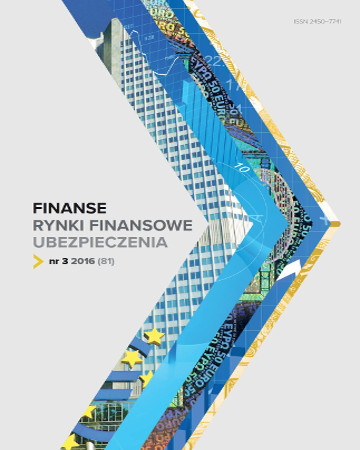
ISSN: 2450-7741
eISSN: 2300-4460
OAI
DOI: 10.18276/frfu.2016.81-09


Issue archive /
3/2016 (81)
Innowacyjność krajów członkowskich Unii Europejskiej w kontekście znaczenia czynnika społecznego
(The European Union member states’ innovation in context of social factor importance)
| Authors: | Marcin Gryczka |
| Keywords: | innovation social factor innovation measures |
| Data publikacji całości: | 2016 |
| Page range: | 15 (91-105) |
Abstract
The goal of paper is to demonstrate the role of social factor in context of economy’s innovativeness. In subject literature innovativeness is usually examined with respect to the expenditure (input) measures and to the effects of R + D activities, but importance of social factor is somewhat rarely included. Such factor can contribute to the valuable domestic environment creation process, which facilitates knowledge absorption and diffusion, innovation process intensification, and commercialization of R + D results. In paper literature and statistical data analyze methods have been used. The results have shown that social factor, analyzed based on Human Development Index, Corruption Perception Index and Interpersonal Safety and Trust Index, has positive impact on innovation economy, and possible exceptions are attributable to the specific features of given economic-social system.
Download file
Article file
Bibliography
| 1. | Corruption Perception Index 2014 (2014). Transparency International. Pobrano z: https://www.transparency.org/cpi2014 (5.04.2016). |
| 2. | Czapiński, J., Panek, T. (red.) (2015). Diagnoza społeczna 2015. Warunki i jakość życia Polaków. Warszawa: Rada Monitoringu Społecznego. |
| 3. | Dodgson, M., Rothwell, R. (red.) (1994). The Handbook of Industrial Innovation. Aldershot: Edward Elgar Publishing. |
| 4. | Eurostat. Pobrano z: http://ec.europa.eu/eurostat/data/database (20.03.2016). |
| 5. | Fagerberg, J., Mowery, D.C., Nelson, R.R. (red.) (2006). The Oxford Handbook of Innovation. New York: Oxford University Press. |
| 6. | Grossman, M., Helpman, E. (1990). Trade, Innovation, and Growth. American Economic Review, 80 (2). |
| 7. | Hollanders, H., Es-Sadki, N., Kanerva, M. (2015). Innovation Union Scoreboard 2015. Maastricht: UNU-MERIT. |
| 8. | Indices of Social Development (2016). International Institute of Social Studies. Pobrano z: http://www.IndSocDev.org (14.03.2016). |
| 9. | Pangsy-Kania, S. (2008). National Innovation Systems an Innovativeness Based on European Innovation Scoreboard 2007. W: K. Żołądkiewicz, T. Michałowski (red.), Meeting Global Challenges no. 25. Working Papers. Sopot: Institute of International Business, University of Gdansk. |
| 10. | The Global Innovation Index 2015: Effective Innovation Policies for Development (2015). Fontainebleau–Ithaca–Geneva: Cornell University, INSEAD, WIPO. |
| 11. | UNDP (2015). Human Development Report 2015. Work for Human Development. New York. |
| 12. | Weresa, M.A. (2007). Unia Europejska – innowacyjne centrum czy peryferia świata. W: E. Kawecka-Wyrzykowska (red.), Unia Europejska w gospodarce światowej – nowe uwarunkowania. Warszawa: SGH. |